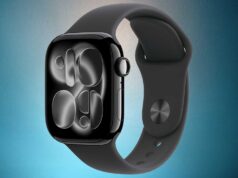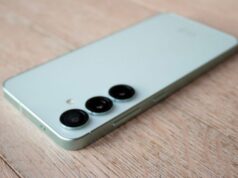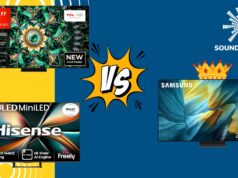Xiaomi recently unveiled its newest flagship smartphone, the Xiaomi 15 Pro, in China. Here’s how it compares to the iPhone 16 Pro.
Here in the UK, we’re still waiting on a 15 Pro launch confirmation from Xiaomi. However, that doesn’t mean we can’t compare the phone to Apple’s newest flagship while we wait.
Stay on this page to learn how these two high-end smartphones compare.
Price
The Xiaomi 15 Pro was announced in China in October 2024, though Xiaomi has yet to confirm a global launch date or pricing. Prices in China start at 5299 RMB, which works out at about £572.
The iPhone 16 Pro was unveiled one month prior in September 2024. Available to buy now in the UK, the iPhone 16 Pro starts at £999.
The Xiaomi 15 Pro has a brighter screen
The Xiaomi 15 Pro has the upper hand when it comes to the displays on these two smartphones.
Xiaomi’s AMOLED screen has a peak brightness of 3200 nits, whereas the Super Retina XDR OLED display on the iPhone 16 Pro tops out at 2000 nits. The Xiaomi 15 Pro also has a higher 1440 x 3200 resolution compared to the iPhone’s 1206 x 2622 resolution.
The Xiaomi 15 Pro also has a larger 6.73-inch screen compared to the iPhone’s 6.3-inch one, though you can always get a bigger iPhone by opting for the 6.9-inch Pro Max model. Both phones offer a smooth 120Hz refresh rate.
The iPhone 16 Pro is powered by Apple’s A18 Pro chip
When it comes to their respective chipsets, the iPhone 16 Pro has the advantage of Apple’s latest A18 Pro chip. This is a chipset designed by Apple specifically for its high-end iPhone Pro models.
The Xiaomi 15 Pro also packs a very powerful chipset in the form of Qualcomm’s latest flagship chipset, the Snapdragon 8 Elite. Last year’s iPhone 15 Pro blew its Snapdragon-powered competition out of the water in many of our benchmarking tests, with the single- and multi-core tests resulting in a particularly large gap.
However, you’ll have to wait until we get our hands on the Xiaomi 15 Pro and iPhone 16 Pro to hear how the two chipsets compare this time around and which phone offers the fastest performance.

The Xiaomi 15 Pro can capture 8K video
Both the Xiaomi 15 Pro and the iPhone 16 Pro take advantage of triple cameras.
On the Xiaomi 15 Pro, the camera array consists of a 50-megapixel main sensor, a 50-megapixel ultra-wide lens and a 50-megapixel telephoto lens with 5x optical zoom. The iPhone 16 Pro, meanwhile, includes a 48-megapixel main camera, a 48-megapixel ultra-wide lens and a 12-megapixel telephoto lens with the same 5x optical zoom.
Video is where these two phones differ a bit more, with the Xiaomi 15 Pro supporting 8K video capture at up to 30fps, along with 4K at up to 60fps. The iPhone 16 Pro, on the other hand, allows for 4K recording at up to 120fps, allowing you to slow 4K footage down further, though there is no 8K support.
Again, you’ll have to wait for our full reviews of these phones to learn how the cameras compare beyond their specs.


The iPhone 16 Pro runs on iOS
Perhaps one of the most obvious differences between these two phones is the operating systems they run on.
The iPhone 16 Pro runs on Apple’s iOS operating system, allowing it to fit seamlessly into the Apple ecosystem when it comes to app support and popular features when used alongside other Apple devices, such as the Mac, iPad and Apple Watch. iOS 18 also includes a range of new AI features powered by Apple Intelligence.
The Xiaomi 15 Pro features Xiaomi’s HyperOS based on Google’s latest mobile operating system, Android 15. This gives you access to a similarly wide array of Android-supported apps, and AI-enhanced features, and makes the Xiaomi 15 Pro a good pairing with other Xiaomi devices.


The Xiaomi 15 Pro has a bigger battery
On paper, the Xiaomi 15 Pro has the bigger 6100 mAh battery, while the iPhone 16 Pro features a smaller 3582 mAh one. However, size doesn’t necessarily translate to a longer battery life, meaning you’ll want to wait for our full reviews of these phones to hear how the battery lives compare.
Both phones feature wired and wireless charging, with the Xiaomi 15 Pro seemingly offering faster speeds in both areas, as well.
Early verdict
Both of these flagship phones are packed with high-end specs but we have yet to see how this translates to benchmarking results and real-world use. Keep an eye out for our reviews of either phone, as well as for an update to this guide when we settle on our final verdict.










